Nukazuke: A Delicious Path to a Healthier Gut
Nukazuke: A Delicious Path to a Healthier Gut
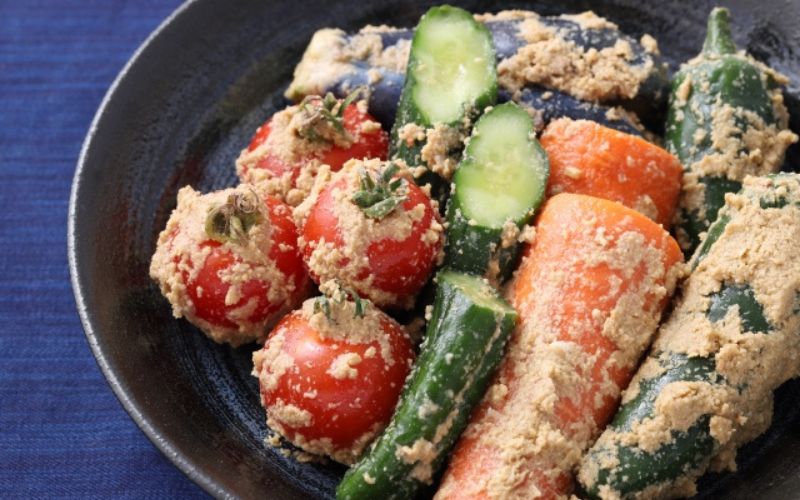
Maintaining a healthy intestinal environment is pivotal for overall well-being, influencing various bodily functions from digestion to immunity.
While factors like diet, hydration, exercise, and sleep play crucial roles, one often overlooked hero in gut health is the consumption of foods rich in beneficial bacteria and dietary fiber.
The Role of Diet in Gut Health

Diet reigns supreme when it comes to nurturing a healthy gut, particularly through the intake of good bacteria and dietary fiber.
These elements are essential for establishing a diverse and thriving gut microbiome.
Soluble fiber, found abundantly in root vegetables, fruits, and seaweeds like wakame, serves as fuel for beneficial bacteria, aiding in their colonization and proliferation within the intestines.
Conversely, poor dietary choices, inadequate sleep, stress, and indulgence in substances like tobacco and alcohol can disrupt the delicate balance of gut bacteria. Furthermore, the indiscriminate use of antibiotics can devastate both good and bad bacteria, emphasizing the importance of judicious antibiotic use.
Nukazuke: A Gut-Friendly Delight
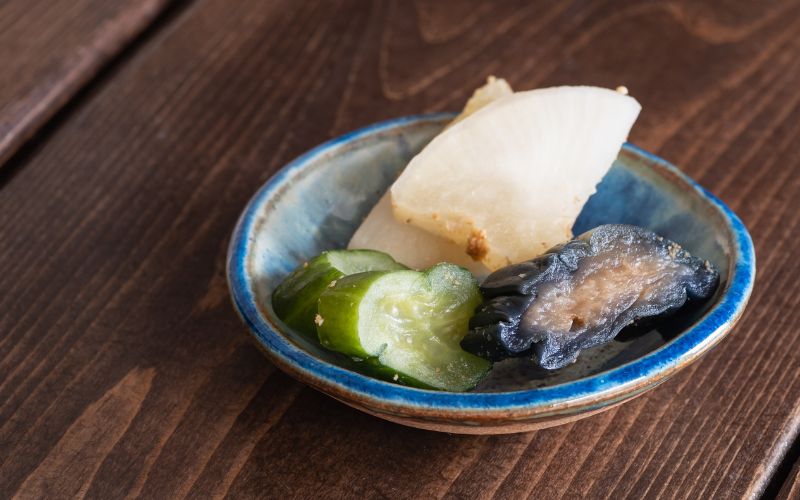
Enter Nukazuke, a traditional Japanese pickle made using rice bran.
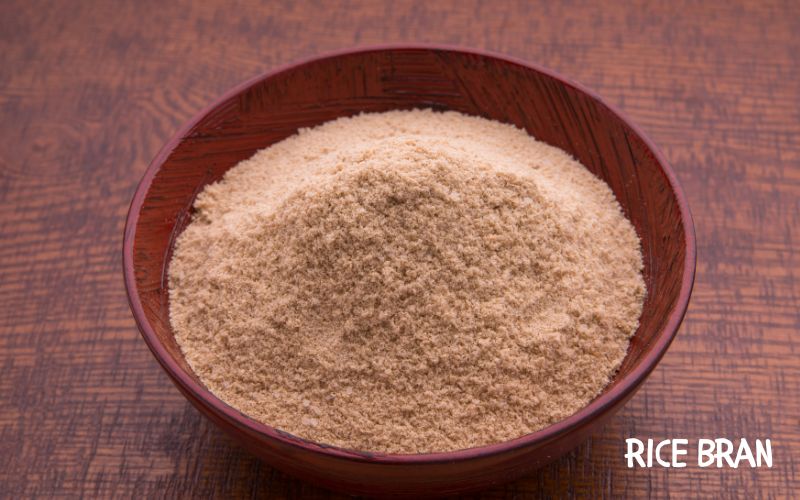
Rich in a diverse array of beneficial bacteria and nutrients, Nukazuke emerges as a potent ally in fostering a balanced gut environment.
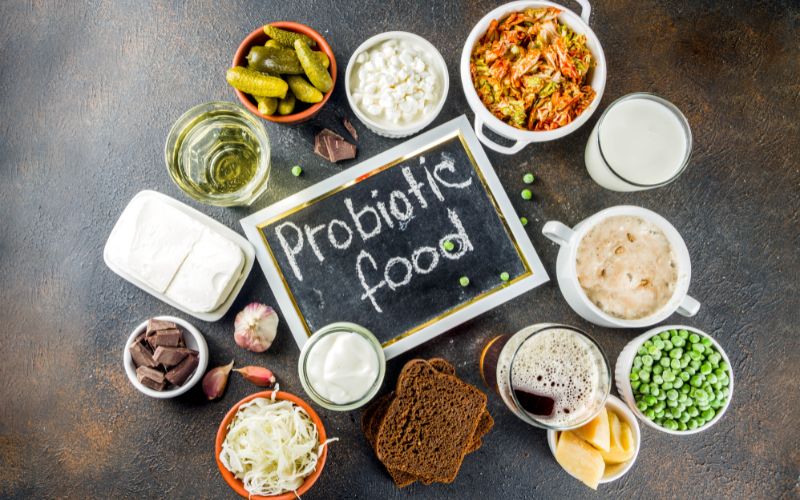
While the sheer quantity of bacteria in Nukazuke may not rival that of yogurt, its microbial diversity is unparalleled, boasting strains like lactic acid bacteria, butyric acid bacteria, and yeast bacteria.
Nukazuke's Health Benefits
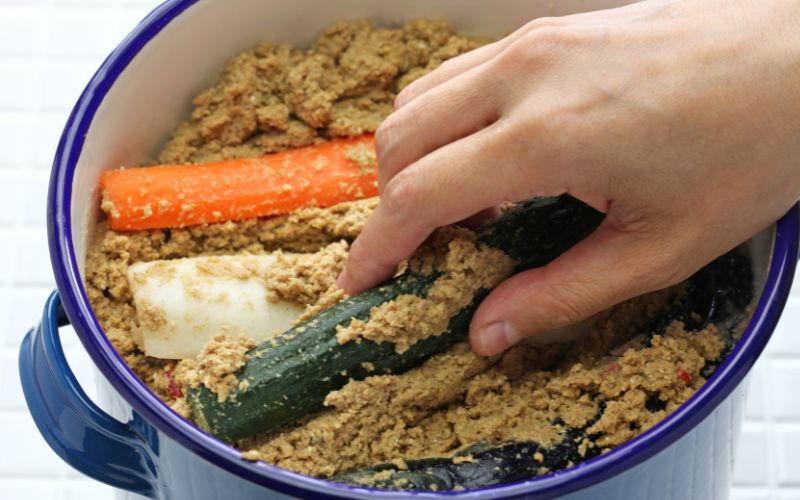
The benefits of Nukazuke extend beyond its impact on gut bacteria.
The rice bran used in Nuka-bed, the pickling medium, is a treasure trove of vitamins, minerals, protein, and fats.
Through the pickling process, these nutrients permeate the vegetables, enhancing both flavor and nutritional value.
Notably, the pickling process significantly boosts the vitamin B1 content, historically making Nukazuke a valuable preventive measure against conditions like beriberi.
Cautions for Enjoying Pickles
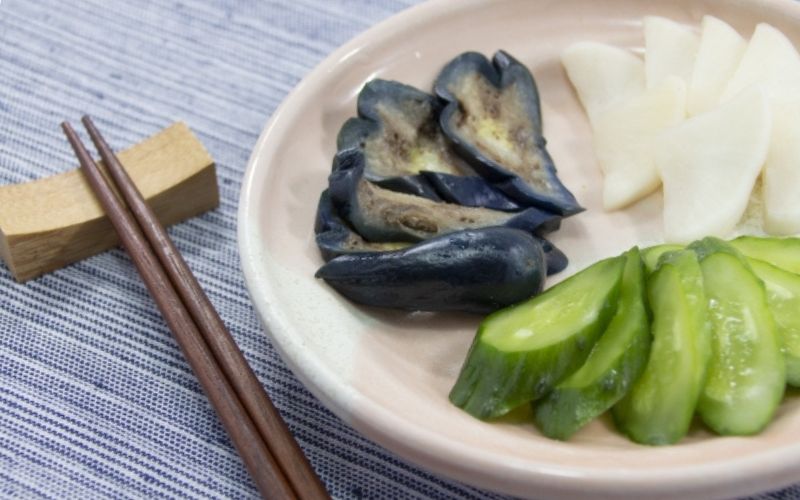
Despite its nutritional prowess, it's crucial to exercise moderation when consuming pickles due to their high salt content.
Just three slices of pickled daikon radish can contribute roughly 1 gram of salt to your diet.
Given that recommended daily salt intake is limited (less than 7.5 grams for men and 6.5 grams for women), excessive pickle consumption can lead to salt overload, particularly for individuals at risk of conditions like high blood pressure and arteriosclerosis.
Tips for Reducing Salt Content
To mitigate salt intake while enjoying pickles, consider the following tips:
- Pickle Whole Vegetables: Opt for pickling whole vegetables to minimize salt absorption.
- Use a Shallow Dish: Choose shallow containers for pickling to control salt concentration more effectively.
- Refrigerator Pickling: Refrigerator pickling slows fermentation, resulting in milder flavors and reduced saltiness.
- Strategic Consumption: Consume pickles between meals or at the end of a meal when stomach acid levels are lower, allowing for better survival of beneficial bacteria in the gut.
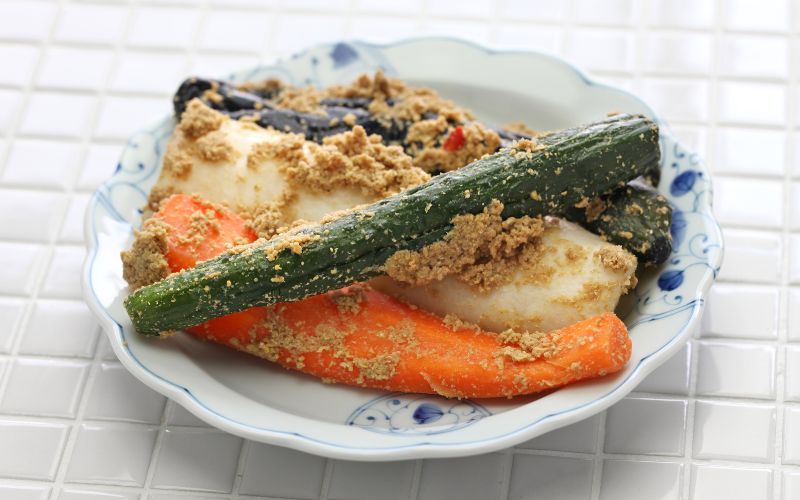
Incorporating Nukazuke into your diet offers a flavorful and nutritious means of promoting gut health.
By embracing this traditional Japanese delicacy while being mindful of salt intake, you can savor its benefits while nurturing a balanced intestinal environment.
So, let's embark on a journey of culinary exploration, enjoying the tangy goodness of Nukazuke while prioritizing gut health.
Your taste buds and your gut will thank you!
You can easily make nuka-zuke at home! ➡ Easy Nuka-doko (bed of salted rice bran)
Visit our fun store of premium Japanese foods on Amazon.com!

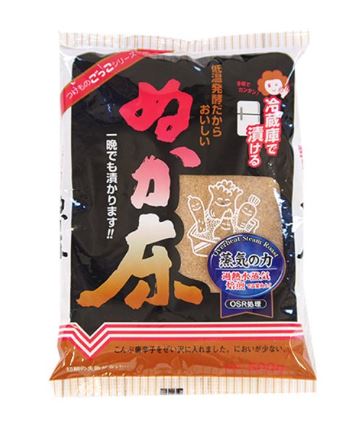
Facebook Comments